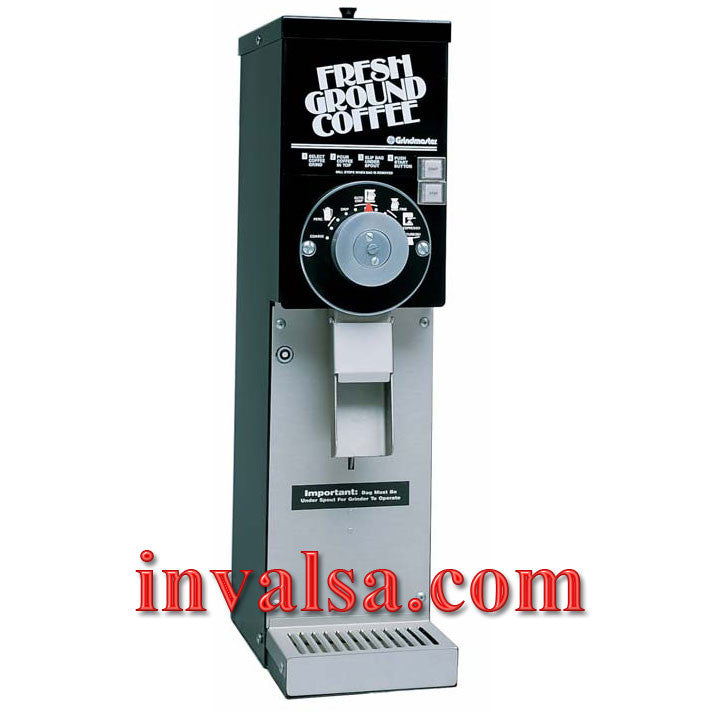Industrial Coffee Grinder for Mass Brewing: Important Details
Industrial Coffee Grinder for Mass Brewing: Important Details
Blog Article
Industrial Coffee Grinder Guide: Increase Effectiveness and High Quality
In the affordable landscape of coffee manufacturing, selecting the appropriate industrial coffee grinder plays a crucial role in boosting both performance and item high quality. Comprehending the nuances of different grinder types and vital functions-- such as personalized grind setups and robust construction-- can significantly influence the final flavor account of the coffee. The optimization of the grinding procedure, coupled with persistent maintenance, is vital for sustaining efficiency over time. As we check out these critical aspects, it ends up being apparent that the effects extend beyond plain tools option, affecting general service success in manner ins which require closer examination.
Understanding Mill Kinds
When choosing an industrial coffee mill, recognizing the various types readily available is essential for enhancing both taste removal and operational effectiveness. Both key types of mills are blade grinders and burr grinders. Blade grinders utilize sharp blades that chop coffee beans right into inconsistent dimensions, resulting in irregular extraction and possibly undesirable tastes. While blade mills are usually extra appropriate and economical for small-scale operations, they are typically not advised for industrial usage.

Eventually, selecting the right kind of grinder is important to maintaining high quality and effectiveness in coffee production, making it necessary for companies to buy top quality burr mills for ideal outcomes.
Trick Functions to Take Into Consideration
Choosing a commercial coffee grinder needs careful consideration of a number of vital functions that can dramatically influence both performance and the general coffee experience. Among the primary aspects to review is the grinding mechanism. Burr mills are typically favored over blade mills, as they offer a consistent grind dimension, which is important for optimum removal and taste.
An additional crucial attribute is the mill's capacity. A functional grinder with several setups enables you to customize the grind dimension to various developing techniques, improving the coffee's taste profile.
Evaluate the grinder's sound level, particularly in a busy coffee shop or production setting, where too much sound can be turbulent. Spending in a mill that stabilizes these features can greatly improve both functional efficiency and the high quality of the coffee offered.
Optimizing Grinding Process
To accomplish the most effective lead to coffee preparation, optimizing the grinding process is vital. The work dimension significantly influences extraction, taste, and total quality of the made coffee. Various developing methods need details grind sizes; for instance, espresso demands a fine grind, while French press demands a rugged appearance. Comprehending the relationship in between work dimension and developing method is the initial step in optimization.


Additionally, checking the grinding speed can maximize the procedure. Slower grinding commonly creates much less warmth, protecting delicate flavors and scents. On the other hand, much faster grinding might create extreme heat, negatively influencing the coffee's top quality.
Maintenance and Treatment Tips
Appropriate maintenance and care of industrial coffee mills are necessary for making certain ideal performance and long life. Normal cleaning is the foundation of maintenance; residue buildup can influence taste and useful content grinding effectiveness. It is recommended to cleanse the grinder after each use, cleaning down the outside and eliminating any kind of coffee grounds from the burrs.
In addition, examine the grinding burrs for wear and tear. Boring burrs can compromise work uniformity, so they need to be replaced as essential. Industrial Coffee Grinder. Occasionally calibrating the grinder is likewise important, as this maintains the preferred work dimension for different brewing techniques
Lubrication of relocating parts should be carried out according to the maker's specs, as this lowers friction and lengthens the life of the devices. It is necessary to utilize food-grade lubricating substances to ensure safety and conformity with wellness policies.
Finally, maintain the mill in a steady and completely dry environment to avoid corrosion and rust. By adhering to these upkeep and care suggestions, drivers can improve the efficiency of their industrial coffee grinders while making certain premium output and prolonged functional life.
Roi Analysis
Examining the roi (ROI) for commercial coffee grinders is critical for businesses seeking to optimize their coffee production abilities. A site link thorough ROI analysis assists figure out the economic stability of purchasing high-quality grinders, allowing services to evaluate the preliminary expenses versus potential gains.
To carry out a detailed ROI evaluation, services should consider a number of essential factors. Initially, evaluate the purchase price of the mill, including installment and any type of needed adjustments to existing framework. Next, compute functional costs, consisting of power usage, upkeep costs, and labor performance enhancements. High-performance grinders typically result in decreased grinding time and enhanced throughput, which can significantly enhance performance.
Furthermore, take into consideration the influence on product high quality. Industrial Coffee Grinder. Superior grinders generate an even more constant grind dimension, which can improve taste accounts and consumer contentment, inevitably driving sales. By increasing the top quality of the last item, services can validate greater pricing, causing increased income
Conclusion
In recap, an industrial coffee see this website grinder plays a crucial role in improving both efficiency and item high quality within coffee production. Eventually, the calculated financial investment in a trustworthy mill contributes considerably to improved earnings and competition in the coffee industry.
In the competitive landscape of coffee manufacturing, selecting the appropriate commercial coffee grinder plays an essential function in improving both effectiveness and item quality. The two main kinds of grinders are blade grinders and burr mills. Within the burr mill category, there are level burr mills and conelike burr grinders, each with its advantages. Burr mills are typically favored over blade grinders, as they offer a constant grind dimension, which is essential for ideal extraction and flavor.
In recap, an industrial coffee mill plays a pivotal role in enhancing both efficiency and item high quality within coffee production.
Report this page